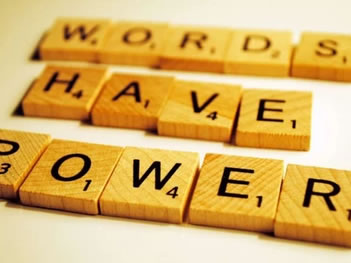When a colleague told me one day that he can’t stand The Great Gatsby with all its awful characters who seem set out to ruin each other’s lives, I scoffed. “You don’t read it for the characters,” I said. “You read it for the language.”
The power of a story lies in the way it’s told. For example, how many times over coffee or cocktails has someone told you what’s supposed to be this hilarious story, yet no one laughs. Red faced, the storyteller apologizes and mumbles that you should have heard Dave tell it. He tells it better. And he does. When you finally meet Dave and hear the story, it’s almost like you’ve never heard it before. It’s the same plot, but the punchline actually punches and the little zingers actually zing. Everyone laughs.
The difference is in the language.
Stephen King claims in his book, On Writing: A Memoir of the Craft (2000), one duty of the writer is to make sensory participants of his/her readers. “Description begins in the writer’s imagination, but should finish in the reader’s” (174). The telepathy that must take place requires precise language for the reader to see what the author sees.
Sorry, Mr. King, but seeing it isn’t enough. The reader who sees a scene will forget it, just like we do the view of the ocean from our vacation balcony. It’s awe-inspiring at the time, but without a photo, we’ll forget it. Sometimes even with the photo, we’ll forget it. What does remain is not the image, but the emotion. When an author can create not only a sensory participant but also an emotional participant out of the reader, that’s when the story lingers in the mind and the soul.
Of all the books we were forced to read in high school, F. Scott Fitzgerald’s The Great Gatsby (1925) remains the one that truly teaches the power of language. Think of the plot. It’s a soap opera, really. Two love triangles (Daisy, Tom, Gatsby and Tom, Myrtle, George) come together while the voyeuristic narrator Nick watches on. The characters lie, cheat, fornicate, and kill. To give him credit, Nick is sickened enough by all of it that he retreats to the Midwest with its “real snow” and wreaths on the doors.
So what’s the big deal? Why do we love this story? Why do students hate Daisy and hate Tom even more? Why do they still cheer for Gatsby even though he becomes more stalkery with every passing year? It’s the language. Fitzgerald’s tawdry tale is wrapped so beautifully in his lyrical language that students become emotionally participatory and stay that way forever. They watch Boz Luhrman’s movie in an attempt to relive what they experienced in the pages. Now, that Gatsby is in the public domain, they’ll read the inevitable prequels and sequels and zombified versions, searching for more. They won’t get it. They will never be able to repeat their past emotional participation unless they re-read the original. It’s one of the reasons Lurhman floats snippets of Fitagerald’s words across his movie screen. No one does language like Fitzgerald.
One of my favorite passages reveals the moment Gatsby gives his heart to Daisy.
His heart beat faster and faster as Daisy’s white face came up to his own. He knew that when he kissed the girl, and forever wed his unutterable visions to her perishable breath, his mind would never romp again like the mind of God. So he waited, listening for a moment longer to the tuning-fork that had been struck upon a star. Then he kissed her. At his lips touch, she blossomed for him like a flower and the incarnation was complete. (110)
Show me a more deeply romantic first kiss experience anywhere in literary history.
I’ve been in that situation where I’m reading a romance novel on an airplane and suddenly turn beet red because I’m uncomfortably “watching” the hero and heroine get it on. It’s cringy. I’m certain everyone in the aircraft knows that I’m sitting there just “watching.” Contrastingly, the power of Gatsby and Daisy’s kiss is not in carnal detail. If I had been settled right there on the park bench with them, I would not have cringed. I would have sighed and longed for such a passionate connection. My heart, too, would have beat faster to taste the danger of something so deep and so strong that I knew it could never last, but I had to have it anyway.
Finally, we can’t discuss Fitzgerald’s language without bringing up the last page of The Great Gatsby. The final words of this novel are some of the most quoted in all of literature. Perhaps they’d be as poignant if worded thus:
Gatsby was a hopeful man. He believed completely in his own dreams. What he didn’t know was that his dreams were something he’d already had, but he searched for them anyway. As do we.
But I doubt it. The power of any story lies in its language. When authors use the right words in the right way for the right audience, unforgettable moments are inked in the minds of the reader. We can’t forget them; nor do we want to. Instead, we sigh and dive back in for more.
Gatsby believed in the green light, the orgastic future that year by year recedes before us. It eluded us then, but that’s not matter–tomorrow we will run faster, stretch out our arms farther…And one fine morning—-
So we beat on, boats against the current, borne back ceaselessly into the past. (180)

